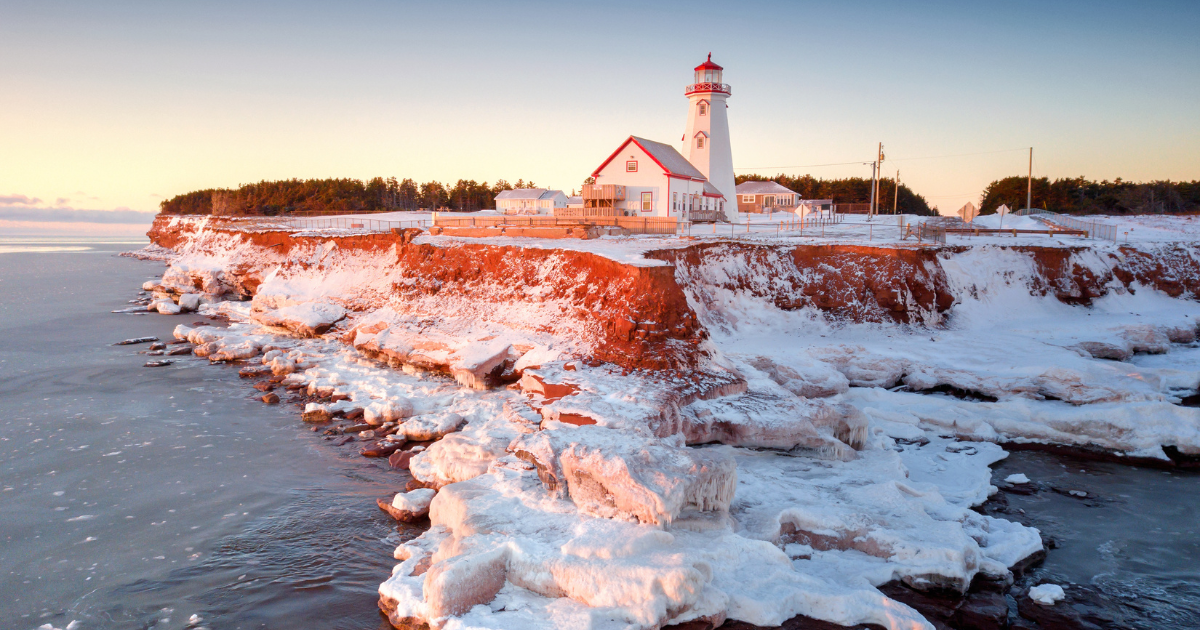A young couple from Mississippi were visiting rural Ontario, their first time in Canada. Staying at the renowned Drake Devonshire Inn, they signed up for my 3-hour Parts Unknown of Prince Edward County guided tour. They didn’t realize just how unknown the parts were where I was taking them.
After driving through the pastoral landscape and having a tasting at a winery, I suggested a craft brewery they might like. We turned off the paved road onto a bumpy dirt lane. It was April, too early for green foliage, and there was no human settlement through the dismal swamp, with spring flood water lapping at road’s edge for a couple of kilometres.
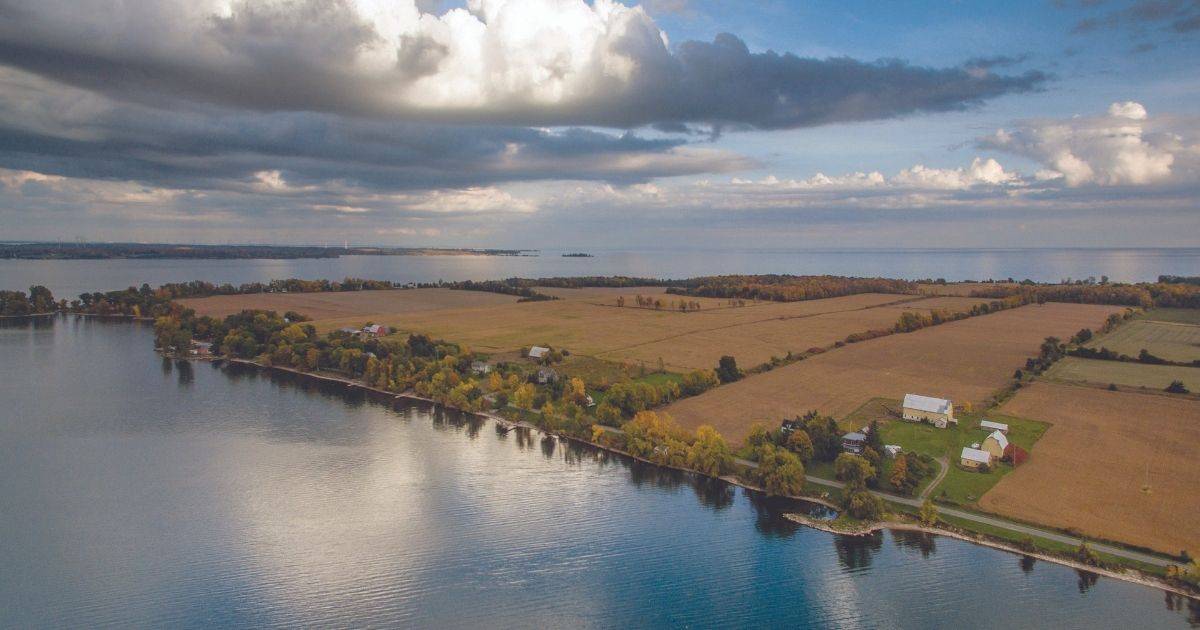
I mentioned that we were going to Strange Brew, housed in the brewer’s own home. From the back seat, there was a conspicuous silence. What were they imagining would happen at this remote house, I wondered.
When we finally came out of the wilds and found a porch full of other patrons, the man commented with relief, “Phil, next time, you might want to make sure your guests get to know you better before you take them down that road.”
Like the Mississippi couple, city dwellers are fanning out into the countryside for a slower pace of life and hands-on experiences with nature and farming. They’re willing to spend 6 hours round-trip in traffic to teleport into another world for the weekend, where they indulge in good food and wine like a journey back in time. While critics point to the carbon footprint of tourism, burning all that gasoline, a passion for tasting food and drink can be the ticket to adventure, back-to-the-land values and a way to truly taste life.
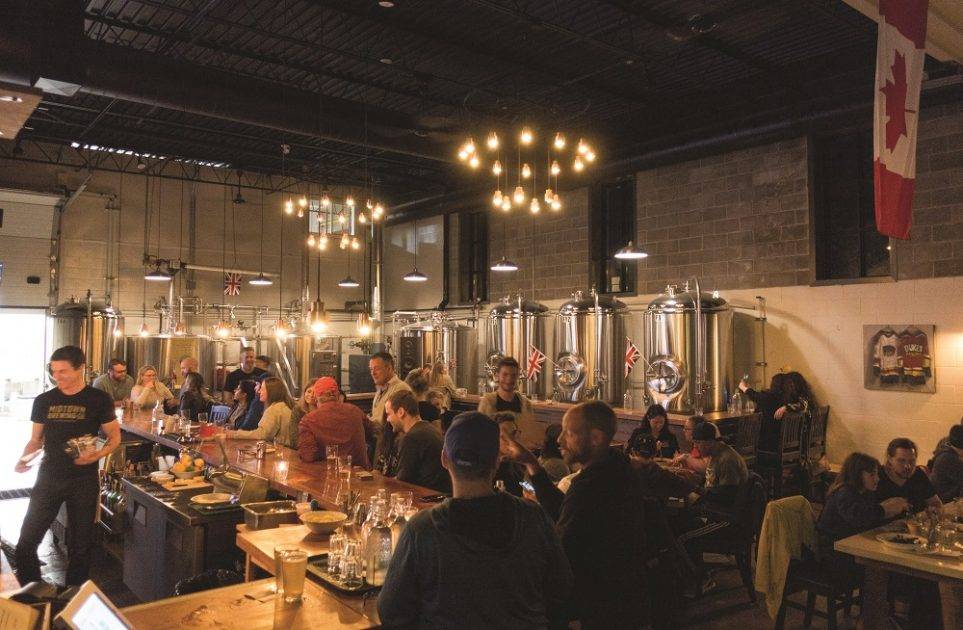
It was so for famed chef Anthony Bourdain, with his television series Parts Unknown. His gritty travel style through discomfort and danger carried viewers to places we would never venture on our own—through a back alley of an Asian city or inside a Latin American commune. A new culinary experience was what drew the moth to the flame, and in that lifelong pursuit, he encountered the world.
My adventures of a lifetime are because of my passion for and pursuit of pictures. Photography has taken me around the world and into the homes of people from many cultures.
After several years of organizing and leading photography group trips through destinations from Newfoundland to California, from Yukon to the Prairies, I became a professional guide right at home. Situated midway between Toronto, Ottawa and Montreal, Prince Edward County has become a tourism hot spot, where it’s all about tasting the terroir.
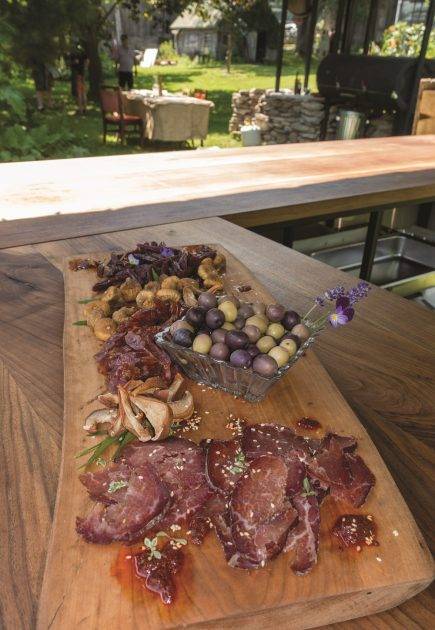
Terroir is an expression that refers to the rich diversity and uniqueness of products grown on the land. The County, as Prince Edward County (a.k.a. PEC) is affectionately called, has about 40 wineries, most established since the turn of the century, this century. There’s a special Great Lakes microclimate, and the limestone geology creates a soil type ideal for Chardonnay wines.
It’s not that much farther north than the legendary Niagara wine region, but just enough to feature other grape varieties and produce a popular light Pinot Noir. What’s unique in PEC and other northern wine regions is the method of hilling or even burying the vines for insulation during the winter, then gently digging them out in the spring.
People who have visited both of Ontario’s wine regions say they like the old-fashioned family farms of Prince Edward County. That’s surely the appeal that led the prime minister of Canada, Justin Trudeau, to vacation here, when he stayed at Angeline’s Inn and stopped at Hinterland, which produces excellent sparkling wines.
My guided tours offer a mix of winery visits and sightseeing through tiny villages, taking selfies with alpacas, grabbing eggs from under warm hens, finding secluded waterfalls and remote stony beaches with no motor noises, only the sound of the lapping Great Lake waves. In May, thousands of brightly coloured migrating warblers and songbirds land on our shores after the 60 km flight across Lake Ontario. And there’s also Sandbanks Provincial Park, with its mountains of sand. It’s experiential tourism, where you create memories of interacting with a world very different from your own.
Locally made cheeses, honey and mustards are other tastes of the terroir. There’s even a tiny olive oil and balsamic vinegar tasting shop on Main Street, Picton. Roadside veggie stands and corner stores offer a chance to chat with local characters.
On the porch of the Milford store, a white-bearded gentleman points to his big red Ford F-150 king cab pickup truck. “How do you think I could afford that?” he asks. I reply that I have no idea, but it must be worth $60,000. He goes on to tell me about his bootlegging days and raking in the cash from illicit sales of alcohol, and tales of outrunning the law.
Throughout history, alcohol has been the reason for economic boom times in PEC, one boom time for each century. After the pioneer Loyalists settled here in 1784, malting barley became the chief crop for export to produce beer and liquor. The era from 1860 to 1890 is known as “The Barley Days.”

Then, during American Prohibition in the Roaring ’20s, Canadian rum-runners smuggled whisky by boat to Main Duck Island and across to Oswego, New York, creating an economic boom for some. At the dawn of the 21st century, County tourism was sparked by a proliferation of wineries. Many were built on old farms by Toronto retirees.
Hot on their heels came the craft breweries, cider houses, spirits and mead. One of The County’s first craft breweries goes by the name Barley Days Brewery and recently hosted Ontario Premier Doug Ford, to launch his infamous “buck-a-beer” campaign.
One of my favourite stops is The County’s very first winery, Waupoos Estates. In 2007, I met founder Ed Neuser, who planted vines along the bay shore in 1993. “Yes, I started this mad wine disease,” he admitted. He brought grape varieties from his homeland in Germany that are well established now. Geisenheim and Gewürztraminer are must-taste wines you will either love or hate.
Credit also goes to Dan Taylor, the municipality’s economic development officer, who introduced a newfangled creative rural economy instead of an old-fashioned industrial base, rallying artists and entrepreneurs and featuring “Taste The County” as a tourist attraction.
While wine tours in PEC are a mainstay, there has been a definite tourism swing to understanding the life cycle of the food we eat and the farmers behind it. Just type #tastethecounty into Instagram to see how many people are photographing food.

Prince Edward County has become a hub of big-name chefs and sommeliers. One who exemplifies the new County ethos of “farm to table” is Order of Canada recipient Jamie Kennedy. At his string of restaurants in Toronto, he championed organic, locally grown food, which he now does in a simpler form at his farm in Hillier and at his steamy booth at the Wellington Market, serving his trademark J.K. Fries. This outdoor Saturday market is a magical collective of everything grown and edible in PEC.
Several CSA (community-supported agriculture) farms are growing food on small acreages and in greenhouses, challenging the traditional wisdom that bigger agriculture is better. The area’s oldest and best-known organic farm, Vicki’s Veggies, holds an annual heirloom tomato festival along The County’s most beautiful tree-lined road. Vicki Emlaw also grows hilarious odd-shaped carrot porn. See photos on her social media or just use your imagination.
Farther out the bay shore road—past an old town hall, a one-room church, pick-your-own blueberry patches, orchards and a pioneer Loyalist homestead—is the ultra-modern, sustainable-energy building of Fifth Town Cheese. Visitors may serve themselves tastes of sharp and creamy and herb cheeses made from locally sourced water buffalo and goat’s milk. A selection of sausages and jerky, explains Luca, the tall young man behind the counter, was imported from Italy by his grandfather.
Food trucks have become a thing, often parked all season at a partner winery. You can find fish tacos, Jamaican jerk chicken and, at Kinsip (The County’s one and only distillery), Big Mike’s BBQ. Mike Bell cooks on an outdoor fire to produce his “bodacious barbecue…with real wood and smoke.” One of his signature dishes is The Texan, “smoked brisket hand-pulled Haanover View Farms pork shoulder and double-smoked Debrecziner sausage.”
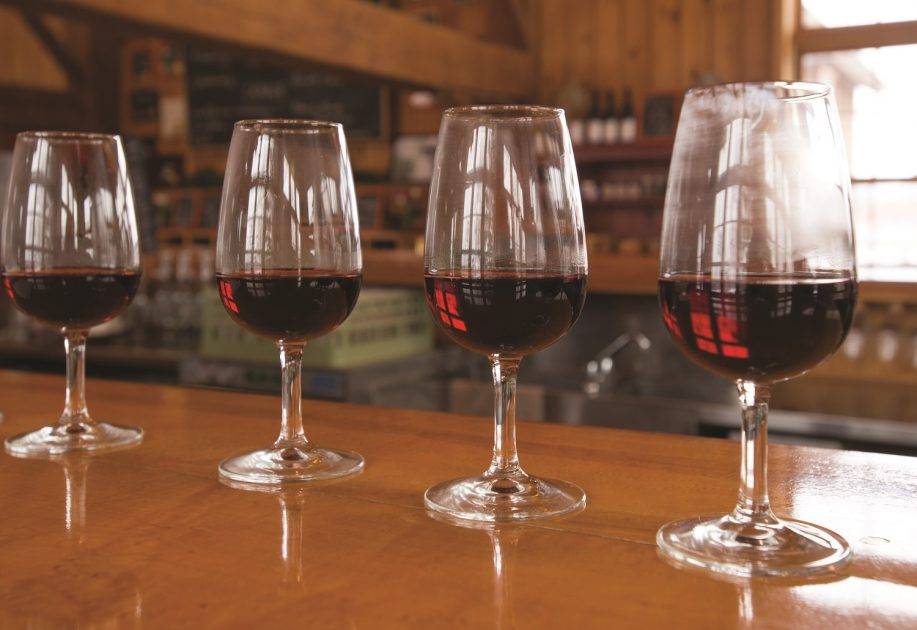
Mike credits Anthony Bourdain’s book Kitchen Confidential for starting him off. Then he and his wife travelled all over the American South, learning about barbecue sauces and different styles in Texas, North Carolina and Kansas. He found a vinegar-and-herbs sauce developed by slaves in the Carolinas and sweet tomato sauces in Kansas. But the one that stuck, which most people associate with barbecue sauce, is from Texas, where “It’s all about the smoke,” he says. When you pair the hot brisket with Kinsip’s maple whisky at a table in the sun, you’re feeling mighty “north by southwest.”
The Grange winery is a picturesque setting with a mature maple-lined lane and a big wooden barn where Caroline Granger used to milk dairy cows. Now the former cattle stalls have barrels of aging wine. Granger’s parents live next door, while daughter Maggie is the winemaker. Maggie says they used to have the most boring bottle labels in The County, but now they have colourful floral designs. Her reason for the redesign: “You eat and drink with your eyes first.”
Nowhere are the eyes treated to as much flavour as at the Drake Devonshire Inn. Each room and outdoor space is a visual treat of modern art and design, built onto the original heritage building. Creative tension is the key to owner Jeff Stober’s success. He brought his downtown urban style from Toronto, and the convergence of lifestyles between historic and hipster has transformed the village of Wellington into a bustling tourist core.
Stober—also known as the King of Queen, for his redevelopment of The Drake Hotel and an entire section of Queen Street in Toronto—chose The County over the high-end Muskoka cottage country. He even purchased a residence here and can be found on-site at the Devonshire. He says they aren’t pushing their style on anyone; rather, it’s offered to those who want it. And there are many who want it, even at $300 a night and up.
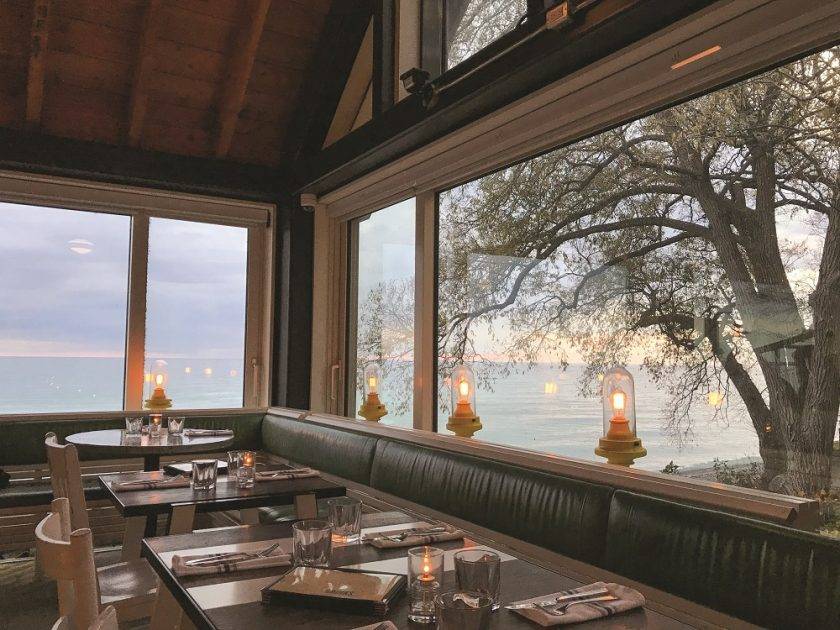
The direct opposite of the Wellington hipster vibe is out on a County dirt road, where a wooden box with a handwritten sign reads “In Here Eggs Organic $5 or Pay What You Can.” Rosalind Adams and partner Jim Gronau raise chickens, sheep and goats and have trained oxen to do the field work instead of a tractor.
I was thrilled to find a real-live subsistence farm to show my guided-tour guests. But Rosalind is against tourism. She says the eggs are just for people who live nearby—don’t even think about using gas to drive out of town just for the eggs!
Her simple living is a conscious effort to avoid the perils of capitalism, materialism and consuming beyond our needs. You can’t disagree with much of what she says about respect for the planet and living her low-carbon lifestyle.
“The downside of tourism is that, like all other forms of non-essential consumption of fossil fuels and resources, we can’t do it anymore without wrecking the planet,” she says.
Many might agree, but for now Prince Edward County holds the perfect balance between exploiting a region’s charms for economic prosperity and leaving pristine places untouched. If left up to market forces, there’s a risk that real estate speculators and overzealous tourism promoters could kill the goose that lays the golden egg, but let’s raise a glass of County Chardonnay in the hopes that it doesn’t happen.
Phil Norton has been seeing life through a lens for over 40 years and working professionally as a writer and photojournalist. He freelanced for Harrowsmith and Canadian Geographic Magazines on environmental and outdoor adventure topics, and served as the editor of a bilingual weekly newspaper, The Huntingdon Gleaner in Quebec, and ran the stock photo department for The Montreal Gazette. Later, in Quebec, he shared his experience in high schools leading students on community photo shoots for publication.











